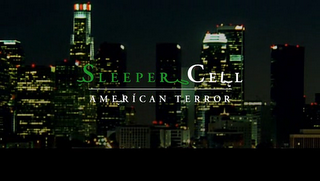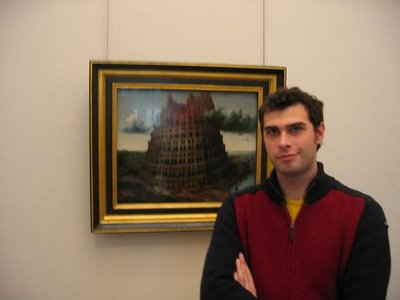By now we have all heard the greybeards of the Baker-Hamilton Commission or the Iraq Study Group and their 79 recommendations. You will note that the word 'victory' does not appear in the text, nor is there any language about the promotion of democracy in the Arab world. The Iraqis themselves are said to unanimously dislike the commission's report and the President, while agreeing in principle to this repudiation of his war, is busy undercutting their effectiveness, like attaching what must be humiliating conditions to having Iran and Syria even be allowed to join the big boy's table. Finally, the Beltway is taking the first step, admitting there is a problem, like that the consistent undercounting of the Iraqi dead. But the brewing civil war is more than most Americans can understand.
First, consider the differences between Sunni and Shiite:
By Western estimates of the worldwide Muslim population, 80% are Sunni and 15% Shia with the remaining 5% forming other groups. Besides minor differences in worship and culture, the major difference between Shia and Sunni is doctrinal: the Shia believe in the Mahdi, the hidden Imam. An imam is sort of like a priest in Catholicism, but since there's no Pontiff in Islam, where does an imam get his authority as an imam from, his imam license? In fact, imammah is the doctrine of leadership particular to Shi'a Islam. The Imam of Time, a certain leader is a guide and guardian for all Muslims. This is different from a caliph, appointed by the community-at-large in Sunni Islam. In a Sunni system they replace the imam as the final word on religious matters with the Koran. Even within the concept that there should be an Islamic spiritual leader by the Shias, there is a factional dispute as to who that should be. Some disagree that imammah can pass within the family, preferring only the first-born male son.
When Muhammad died, leadership in the nascent Muslim community passed to his father-in-law, Abu Bakr. The Shi'a, or Shi'at Ali, the party of Ali, believe that Muhammad chose his cousin and son-in-law, Ali ibn Abi Talib, in accordance with God's command, making Ali the true successor. Other Muslim groups disagree. The largest denomination in Islam, the Sunni, hold that Abu Bakr was chosen by the community, and that this method of choosing or electing leaders was endorsed by Muhammad.
Other things to consider: Moqtada al-Sadr. He has a family history that traces itself back to the daughter of the prophet Muhammad, Fatima Zahra. This direct and meticulously documented lineage is unprecedented even among the illustrious families in the Islamic world who claim such lineage. And since the Shia consider themselves the followers of Prophet Muhammad's bloodline, a great deal of respect and reverence is paid to the Sayyids throughout society. Sadr has been the most resolutely anti-American of Iraq's postwar political leaders.
Although he lacks in Islamic scholarship, his bloodline and his family's consistent presence in Iraq, not running off to exile in Iran, have given him an authority which no other major leader can match. Some think he is building a messianic movement, calling for an "Islamic democracy" or what we would think of as a theocracy, in Iraq. In June of 2003, he raised a resistance movement estimated to number in the hundreds of thousands, the Mahdi Army. The name of the resistance refers to the Mahdi, an imam who is said by Muslims to be due to appear in messianic form during the last days of the world. This resistance has several times engaged in violent conflict with Coalition forces and has formed its own religious courts and prisons. Sadr’s considerable leverage was apparent early in the week of 16 October 2006, when Prime Minister Nouri al-Maliki ordered the release of one of Mr. Sadr’s senior aides. The aide had been arrested a day earlier by American troops on suspicion of participating in kidnappings and killings.
Sadr City is a suburb which covers most of northeastern Baghdad which Sadr is de facto ruler of. It was built in 1959 in response to a grave housing shortage and originally named 'Revolution City', becoming a refuge for the urban poor who moved to Baghdad from the countryside and a stronghold of the Iraqi Communist Party. It was renamed Saddam City following the Baathist coup in 1963. This seething cauldron of poverty, religious fervor and sectarian division has been the cause of much of Iraq's postwar chaos, much to the dismay of US forces. It was here that soldiers such as Casey Sheehan, son of peace activist Cindy Sheehan, lost their lives fighting the new threat of armed anti-American militias.
The other major Shiite power-broker is Sayed Mohammed Bakir al-Hakim, leader of the Badr organization and the Iranian-sponsored Supreme Council for the Islamic Revolution in Iraq (SCIRI). That's Ayatollah Al-Hakim to you and me. What is Hakim's relationship to Sadr like? Well in August 29, 2003 Al-Hakim's brother, another Shia cleric, was leaving the Imam Ali Mosque in Najaf when a massive car bomb killed him and at least 84 others. Some thought that his brother's death was just part of a campaign by anti-Shia Sunnis or Baathists angry at the rising influence of Shias in the government. But there's always been a similar violent history between Shia factions and with the unexplained circumstances of the attack has led people to think that supporters of Sadr did it to rid themselves of the leader of a faction growing increasingly conciliatory towards the US. According to US officials, it was Zarqawi's crew.
Nouri al-Maliki, the Iraqi Prime minister, is from the Dawa or "Call of Islam" party. He spent twenty years in exile in Iran and Syria before returning to Iraq in 2003, becoming the head Shiite in the new government. The stability of Maliki’s government depends on a tenuous peace between Moqtada al-Sadr, who controls one of the largest voting blocs in parliament, and Abdul Aziz al-Hakim, who leads the Badr Organization and the country’s largest Shiite party, the Supreme Council for the Islamic Revolution in Iraq. A generations-long feud between their families has carried over into a personal and political rivalry between the men, and their militias have periodically clashed.
If Iran is funding alot of the Shiite death squads, then who is funding the Sunni insurgents? Why other wealthy Sunnis. most from the neighboring Kingdom of Saudi Arabia. AP:
"Several truck drivers interviewed by The Associated Press described carrying boxes of cash from Saudi Arabia into Iraq, money they said was headed for insurgents...."
And how will Bush take all of this, the complexities of Iraqi politics and the desire in our political establishment for some kind of change in policy? Not well, or like a petulant child being told that his attitude is not helping, if recent reports are any indication. Bush has been described as the ultimate neo-conservative; as such he has shown the same immunity to reason and reality cloaked in disingenuous paeans to history:
"Bush began his talk by comparing himself to President Harry S Truman, who launched the Truman Doctrine to fight communism, got bogged down in the Korean War and left office unpopular.
Bush said that "in years to come they realized he was right and then his doctrine became the standard for America," recalled Senate Majority Whip-elect Richard Durbin, D-Ill. "He's trying to position himself in history and to justify those who continue to stand by him, saying sometimes if you're right you're unpopular, and be prepared for criticism."
Durbin said he challenged Bush's analogy, reminding him that Truman had the NATO alliance behind him and negotiated with his enemies at the United Nations. Durbin said that's what the Iraq Study Group is recommending that Bush do now - work more with allies and negotiate with adversaries on Iraq.
Bush, Durbin said, "reacted very strongly. He got very animated in his response" and emphasized that he is "the commander in chief."
Español | Deutsche | Français | Italiano | Português| Ch| Jp| Ko








